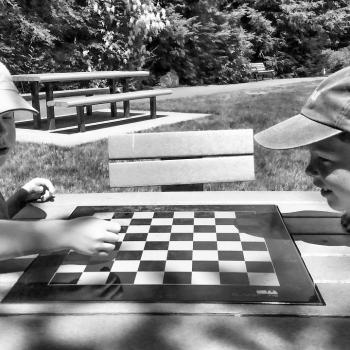10 Tips for Parents of a Struggling Reader
(Part 1 of a 2-Part Series)
Few things in life are as heart wrenching for a parent as watching their child struggle with reading. Although challenges with reading are common (the International Dyslexia Association states that as many as 15% of the population struggles with some form of dyslexia), the challenges that go hand-in-hand with struggling readers can be enormous.
 If you are a parent of a struggling reader, please know that you are not alone! As a parent of a child with severe dyslexia and dysgraphia, and as an educator, I understand. In fact, I am often invited to speak to parents of struggling readers. As part of my presentations, I offer ten tips for parents. I would like to present those tips to you now. Although these tips are presented in an abbreviated form (compared to the information I offer in my workshops), my prayer is that the recommendations will offer you some guidance, some help, and above all – hope.
If you are a parent of a struggling reader, please know that you are not alone! As a parent of a child with severe dyslexia and dysgraphia, and as an educator, I understand. In fact, I am often invited to speak to parents of struggling readers. As part of my presentations, I offer ten tips for parents. I would like to present those tips to you now. Although these tips are presented in an abbreviated form (compared to the information I offer in my workshops), my prayer is that the recommendations will offer you some guidance, some help, and above all – hope.
10 Tips for Parents of a Struggling Reader:
1.Pray or meditate (spend time in the classroom of silence)
I am a firm believer in the power of prayer. In fact, I have seen how God has answered my prayers, often by putting the right people or right resources in my path – just at the right time. Furthermore, there are also health benefits gained from regular prayer. Daily prayer can decrease stress and provide a more positive outlook on life. However, if you are not a Christian, practicing meditation on a regular basis can help you find calm and balance. Helping a struggling reader takes regular, daily effort for many years. There simply is no quick fix. In truth, taking care of ourselves throughout the years is important. Prayer (meditation) is one practice that can help.
2. Become the expert
Remarkably, few classroom instructors understand the signs of dyslexia. In addition, few know what to do if a child in their classroom does struggle to read. Yet, there are abundant resources available to help. However, it is up to us, as parents, to become experts in this field – so that we can provide the help and resources that will be of greatest value to our children. The good news is that there are books, tutors, programs, and assistive technology that have been proven to help the struggling reader. The bad news is that there are also books, tutors, programs and technology that claim to help but don’t.
To find out which ones are the best, consider beginning your research by looking into these websites:
Helpful Websites to Get You Started
http://eida.org/ The International Dyslexia Association’s website is a wealth of information. With articles, answers to frequently asked questions, information about dyslexia, conferences, teachers and more, this is an excellent website to visit to begin your research – or to continue learning as your child reaches different stages in learning.
https://bartonreading.com/ The Barton Reading and Spelling System is a proven method of instruction for struggling readers and spellers. They offer training, videos, and many online resources. See their website for more information.
http://www.actstudent.org/regist/disab/ The ACT test website contains information for students who require accommodations. Some of these accommodations may include extended time of the test, ability to take it in a private space, the use of a keyboard for essay writing, among others. Documentation is required. Please visit this website prior to your child’s ninth grade year to be familiar with the requirements needed to receive accommodations.
https://www.learningally.org/ Learning Ally is a not-for-profit organization working with parents, teachers, and the community together to help dyslexic, blind, and visually impaired students succeed. Great audio books available through their program. Lots of excellent information at this website.
www.AllAboutLearning.com All About Reading curriculum is an Orton-Gillingham based curriculum and, according to Patricia Mundahl, CALT, “is one of the best I’ve seen for struggling readers.”
3. Don’t panic
As the above list indicates, there are countless resources available for struggling readers. Therefore, there is no reason to panic if you have a struggling reader. Likely, your child is probably feeling anxious because of the challenge. Therefore, as the parent, it is imperative that we model calm and confidence. It is up to us to assure our child that we believe they can do it, that it will take time, but we will find the help they need to succeed.
We should not panic, but we should get started. First, we need to begin learning about struggling readers and important interventions. Next, we need to advocate for our child to make certain that they begin receiving the help they need.
4. Advocate for your child – while teaching them to advocate for themselves
Additionally, if your child attends a traditional school, it will be important to meet with your child’s teacher (and possibly the special needs coordinator) to discuss your concerns regarding your child’s reading. When schools and parents partner together, wonderful things can happen for children. As a parent, being an informed advocate (see Tip #2) is extremely beneficial. Truly, the more you know about your child’s reading struggles, the better able you will be to partner with the school. For example, you’ll know what questions to ask (including questions about testing, tutoring, and outside training), what accommodations should be made available, and what assistive technology exists that can be helpful.
As your child grows, it will be important to help them develop the necessary skills to advocate for themselves. This will be a gradual learning process throughout their school years. Parents and teachers can work with the student to provide him or her with self-advocacy practice opportunities. In addition, parents and teachers can offer guidance in self-advocacy throughout the elementary and middle-school years; allowing the student to take greater responsibility by the time they reach high school. Helping children grow in self-advocacy skills will benefit them throughout their adult years. Recognize, however, that this takes time and practice.
Stay Tuned for Part 2 of this Article coming on Wednesday!
Pamela Patnode will be speaking at the MN Catholic Home Education Conference on June 2, 2018 at the University of St. Thomas in St. Paul, MN. Click this link to register for the event and attend Patnode’s presentation.













